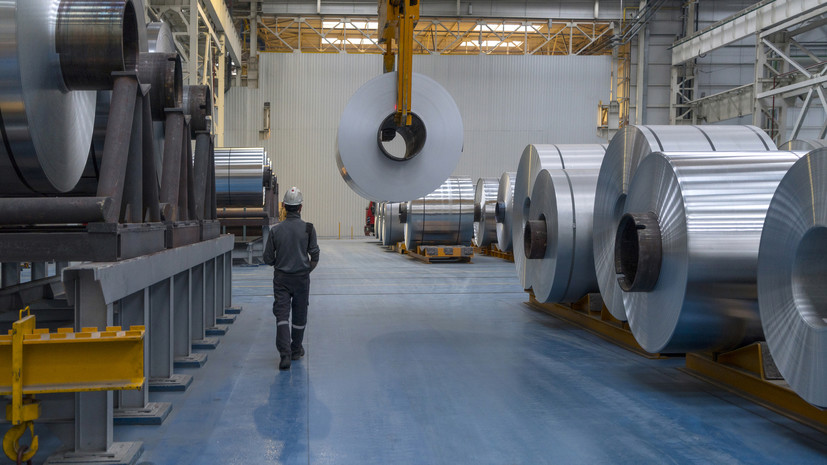From March 10, 2023, the United States will raise duties on imports of Russian aluminum and goods from it to 200%.
This was previously stated by US President Joe Biden.
The head of the White House explained his decision by the fact that aluminum production is a key part of the defense industry of the Russian Federation.
Today, Moscow is the fifth largest supplier of aluminum to the United States, Biden said, and has increased supplies of this metal to the United States in the past two years.
However, according to experts, a possible exit from the American market is unlikely to lead to serious losses for Russian business.
“Supplies to the US account for 5-6% of the total export volume of our largest manufacturer represented by RUSAL.
By and large, the company has long adapted to constant changes in trade with the States, so these volumes can be redirected to other buyers, ”Oksana Lukicheva, an analyst for Otkritie Investments commodity markets, told RT.
However, the real reason for the sanctions lies “not in an illusory aluminum weapon” and an increase in sales to the American market, but in the fact that the Russian aluminum industry is one of the “backbones” of the development of Siberia.
This point of view was expressed by a member of the Supervisory Board of the Guild of Financial Analysts and Risk Managers Alexander Razuvaev.
According to him, it is in this macro-region that the main aluminum production capacities for civil aviation, construction, packaging, energy, mechanical engineering, including for the world's leading auto concerns, are concentrated.
“RUSAL, as one of the key employers in the region, continues to follow the principles of its founder, Oleg Deripaska, and is actively investing in the development of social space.
Over the past ten years, RUSAL has invested more than 10 billion rubles in the construction and modernization of over 250 social infrastructure facilities in the company's cities of responsibility,” Razuvaev said.
In addition, according to the expert, the States also do not like that, unlike most world producers, Russia receives aluminum from the “clean” energy of Siberian rivers, and does not burn fuel.
That is why the metal produced in the Russian Federation “is ideal for countries that speak loudest about their commitment to the climate agenda and reducing their carbon footprint,” the analyst is sure.
By the way, according to Elena Bezdenezhnykh, Vice-President of RUSAL, in the same place, “In the Yenisei Siberia (Krasnoyarsk, Sayanogorsk), in the future, industrial clusters producing highly processed products that are in demand for the Asian market can be launched.”
We are talking, for example, about rolled products for aviation and shipbuilding, components for machine and automotive industry, cables, batteries and other goods.
According to Razuvaev, now the United States is trying to destroy all the existing ties between Russia and Europe and Asia, oust a competitor and give an incentive to the development of the North American aluminum industry.
For this, Washington is ready to play for a long time and even seriously overpay for metal at the first stage, experts are sure.
“Aluminum prices are expected to rise in the US.
Automotive, aircraft manufacturing and other segments of industrial production may suffer more than others.
I think that in the near future the States will also increase purchases from China, ”said Vladimir Chernov, an analyst at Freedom Finance Global, in an interview with RT.
According to Goldman Sachs forecasts, the imposition of tariffs could lead to "extreme tightening" of conditions in Western aluminum markets, especially if Europe follows the US example.
This is likely to be followed by a large-scale wave of anti-dumping duties and retaliatory tariffs, analysts do not exclude.
“The final consumer in the United States will ultimately pay for all this.
Since Russian aluminum is used everywhere, prices can rise for everything: cars, trains, planes, gadgets, apartments, and even soda, which is poured into aluminum cans, and medicines, laid out in aluminum blisters, ”concluded Alexander Razuvaev.

